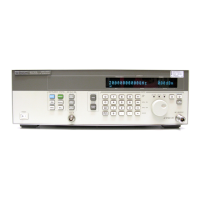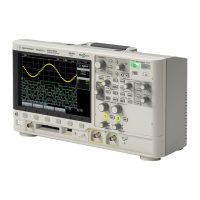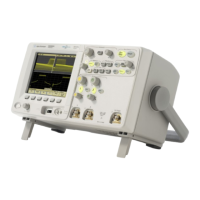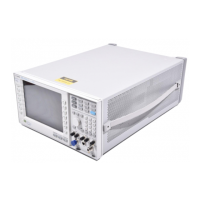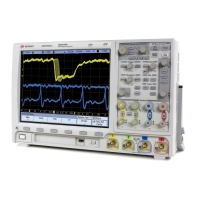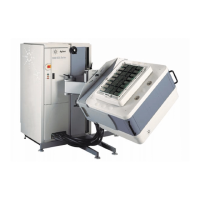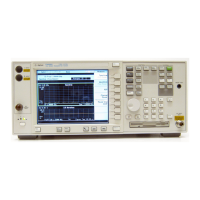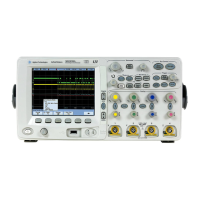3Capturing Data
66 Agilent 1000B Series Oscilloscopes User’s Guide
Overview of Sampling
To understand the oscilloscope’s sampling and acquisition modes, it is
helpful to understand sampling theory, aliasing, oscilloscope bandwidth
and sample rate, oscilloscope rise time, oscilloscope bandwidth required,
and how memory depth affects sample rate.
Sampling Theory
The Nyquist sampling theorem states that for a limited bandwidth
(band- limited) signal with maximum frequency f
MAX
, the equally spaced
sampling frequency f
S
must be greater than twice the maximum frequency
f
MAX
, in order to have the signal be uniquely reconstructed without
aliasing.
f
MAX
= f
S
/2 = Nyquist frequency (f
N
) = folding frequency
Aliasing
Aliasing occurs when signals are under-sampled (f
S
< 2f
MAX
). Aliasing is
the signal distortion caused by low frequencies falsely reconstructed from
an insufficient number of sample points.
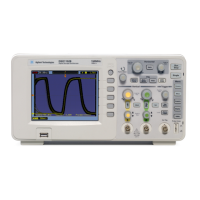
